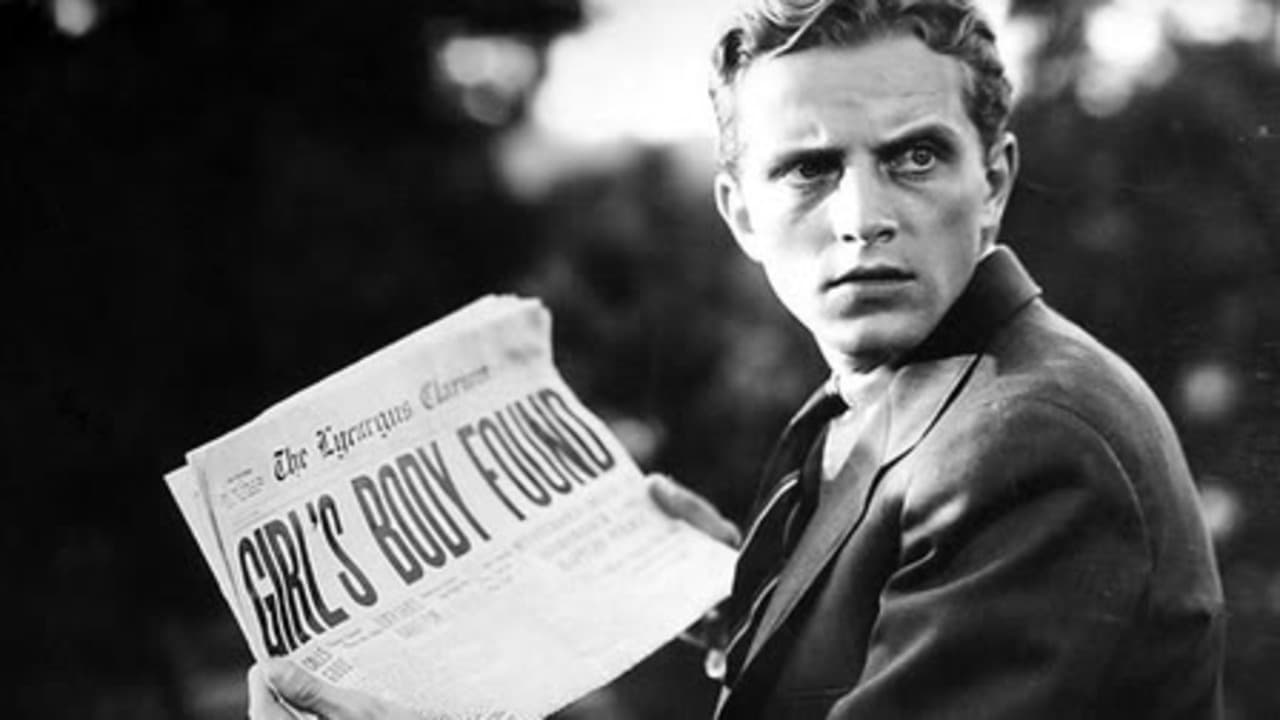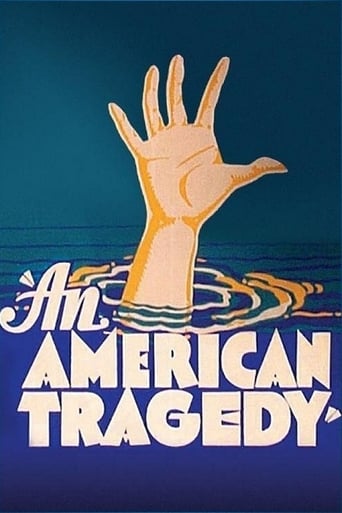

Strong and Moving!
... View MoreI was totally surprised at how great this film.You could feel your paranoia rise as the film went on and as you gradually learned the details of the real situation.
... View MoreIt is neither dumb nor smart enough to be fun, and spends way too much time with its boring human characters.
... View MoreThrough painfully honest and emotional moments, the movie becomes irresistibly relatable
... View More"An American Tragedy" is a novel by Theodore Dreiser. It is a long complex novel, but in its essentials it boils down to this: boy meets girl, boy gets girl pregnant, boy meet another girl he likes better, boy kills the first girl, boy is executed for murder.They have names, of course: the boy is Clyde, the first girl is Roberta, and the second girl is Sondra. Now, Clyde doesn't actually kill Roberta. He planned to drown her and make it look like an accident. He gets her out into the middle of the lake in a rowboat, knowing she cannot swim. But then he thinks he cannot do it. But then he thinks he will. He might as well be picking petals off a daisy: "I kill her, I kill her not, I kill her, I kill her not." Anyway, she ends up falling overboard and drowns just as he was thinking, "I kill her not." Notwithstanding all the planning he put into this murder that he changed his mind on at the last minute but which had the same result anyway, his identity is discovered, he is tried for murder, convicted, and executed.This first film adaptation, released in 1931, has the same title as the novel, and the three principal characters have the same names. The second adaptation, made in 1951, has a title that is different from the novel, "A Place in the Sun," and the characters have different names. Don't ask me why. In most respects, the second adaptation is a much better movie. It was directed by George Stevens, starring Montgomery Clift as Clyde = George; Shelley Winters as Roberta = Alice; and Elizabeth Taylor as Sondra = Angela. (For the sake of consistency, I will continue to the use the names in the novel.)But in one respect, this first adaptation is better, and so much so in this respect that I prefer this version to the second. In the movie "An American Tragedy," Roberta is played by Silvia Sidney. We readily believe in her naïve innocence. She seems like the Roberta of the novel, a woman we like and feel sorry for. As noted above, however, in "A Place in the Sun," Roberta is played by Shelley Winters. I don't know what Shelley Winters was like as a person, but her screen persona simply is not the sweet, innocent virgin for whom we are supposed to have sympathy because she was taken advantage of by a man. On the contrary, she seems suited for roles in which she is a hardboiled broad, as in "Alfie" (1966) or "Bloody Mama" (1970). As a result, when she is taken advantage of by a man in a movie, we are more likely to think she is dumb than naïve.Partly as a result of this difference, we are sad when Silvia Sidney's Roberta drowns. As for Shelley Winters' Roberta, however, we know we are supposed to feel sorry for her, and we do a little bit, but the fact is that we never really mind when Shelley Winters dies in a movie. For example, the fact that she drowns in "The Poseidon Adventure" (1972) does not spoil our sense that the movie has a happy ending. A third movie in which Shelley Winters drowns is "The Night of the Hunter" (1955), murdered by her newlywed psychopathic husband, played by Robert Mitchum. Now, Robert Mitchum's character, Harry Powell, is supposed to be as bad as they come, so you would think they would have allowed him to kill a more likable actress, like Jane Wyatt, for instance, so that we would really think Harry is evil. But they picked Shelley Winters to be his victim so that we would not spend the rest of the movie feeling sorry for her.In other words, if "A Place in the Sun" had starred an actress to play Roberta who would have been more believably innocent and whose death would have been more disturbing, then we would have been appropriately outraged that Clyde would have even thought about abandoning her, let alone make elaborate plans to murder her, just as we are when we read the novel. But with Shelley Winters playing the part, her death really seems to be no great loss, and we end up feeling sorrier for Clyde, played by the likable Montgomery Clift, than we do for Roberta.
... View MoreLike all the studios Paramount did not believe in idle hands. In between Marlene Dietrich projects, Josef Von Sternberg got assigned to do this adaption of Theodore Dreiser's novel An American Tragedy. Of course Paramount's second adaption of this story A Place In The Sun is far better known.Paramount was never known as a studio which did films with a message of social significance. Interesting to speculate what the results would have been had this been done at Warner Brothers. Von Sternberg did do a good piece of film making. But the story died at the box office. I suppose the story of a man trying to marry upward to secure a better place in society and the tragedy resulting just wasn't of interest to Depression audiences.Whether it was or it wasn't Paramount sold the next one with sex, the love story of Montgomery Clift and Elizabeth Taylor heating up the screen. That went over big in 1951.In this story Phillips Holmes is the ne'er do well relative of factory owner Samuel Griffiths who gives him a job in his factory, but keeps him at a distance socially. More than anything else Holmes wants acceptance from the upper crust.At the factory he drifts into an affair with fellow worker Sylvia Sidney, but when he sees rich Frances Dee she's the ticket to all he's ever wanted. But Sylvia's now pregnant, what's a guy to do?Dreiser's thoughts about class and class distinction are carefully preserved here. Yet in the most class conscious era in American history this didn't go over with the public. I guess even in those times you need a little sex to get people to the box office.All the leads performed well and I also would commend Irving Pichel as the prosecuting attorney. This part was also a milestone for Raymond Burr who did it in A Place In The Sun.An American Tragedy holds up well for today's audience which is also thinking about class distinctions and upward mobility today.
... View MoreThis seems much closer to the facts of Theodore Dreiser's great novel than the soapy 50s version, good in its own way, with Montgomery Clift.Even with florid Josef von Sternberg directing, the film follows the basic plot of the novel although there seem to be a few holes. Still, the courtroom scene is electric and makes this all worth it. I also like the casting of Phillips Holmes as Clyde. Holmes is able to capture the bizarre passions and inability to really care that embody Clyde. His subtle performance in the courtroom scenes, as he slowly breaks down and loses any sense of truth under the barrage of lawyers, is quite excellent. His voice goes higher and thinner as he becomes just a frightened boy answering the stupid questions posed by the sadistic and ambitious lawyers.Sylvia Sidney is quite good as the tragic Roberta, and Frances Dee captures the haughty attitudes of the wealthy of that era. Charles Middleton and Irving Pichel play the lawyers. And Lucille LaVerne plays Clyde's mother.This was a big hit in its day and helped establish Holmes and Sidney as stars. Holmes had a relatively short starring career and died in WW II but he made several memorable films with Nancy Carroll.
... View More"An American Tragedy" is based on the novel by Theodore Dreiser, which was based on a real murder in 1906, and its subsequent trial. While watching this, I had to remember that the acting style of those days were much more stylized and melodramatic than the method system used today. Having said that, Philips Holmes, who plays our protagonist, Clyde Griffiths, really wasn't all that good. He seemed pretty stiff to me. Sylvia Sidney played Roberta Alden, the girl he gets pregnant and then ends up accidentally killing. Her acting was much better than the rest of the cast. The first half of the film drags, showing Clyde lonely at his job supervising women in a factory. Then he meets Roberta and they get involved. After Clyde gets Roberta pregnant, he meets Sondra (Frances Lee) and falls in love with her. The film really picks up during the trial, where the prosecutor and defense attorneys get really bombastic. This film was later remade as "A Place in the Sun" which was a lot better on the whole.
... View More